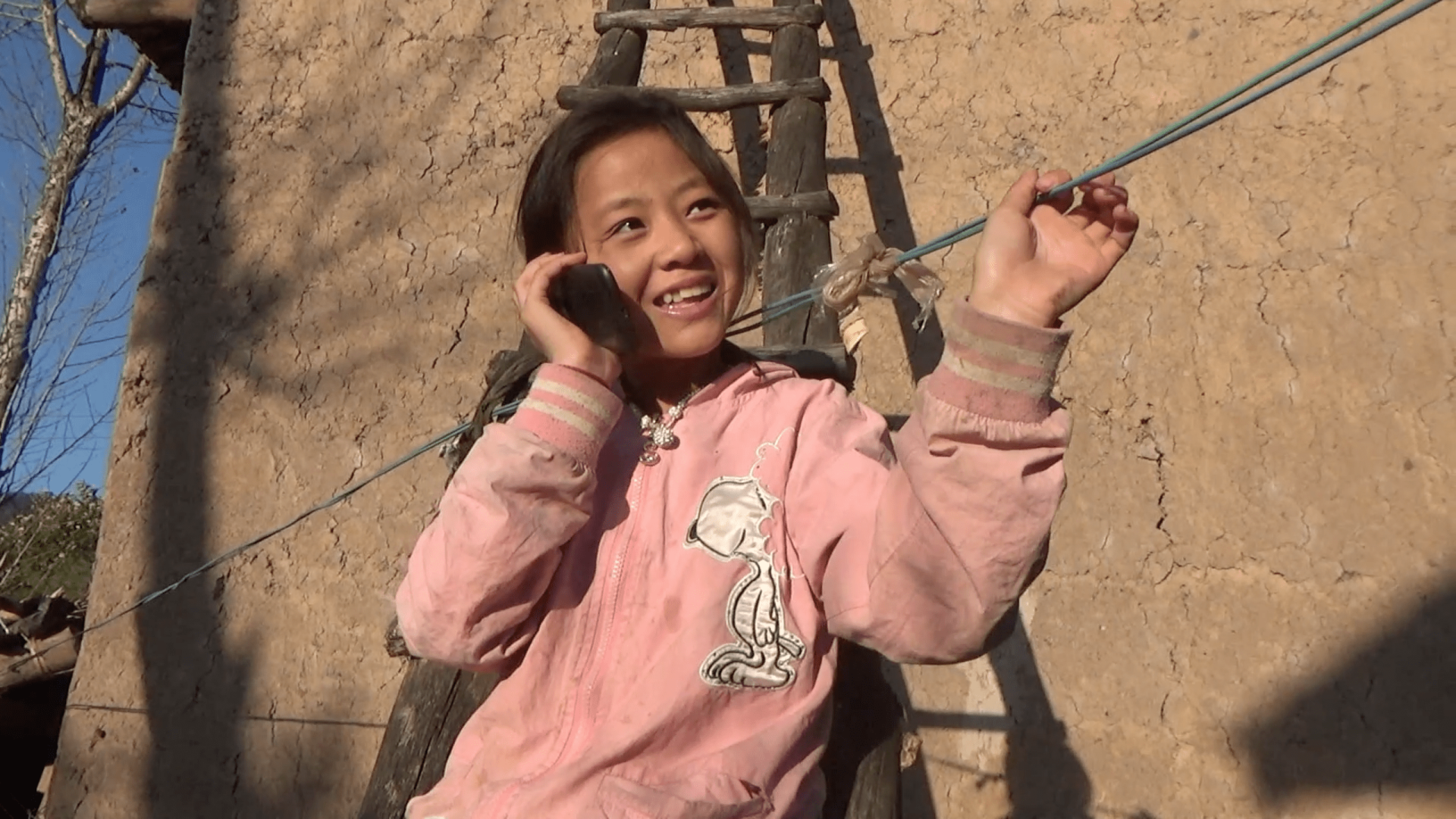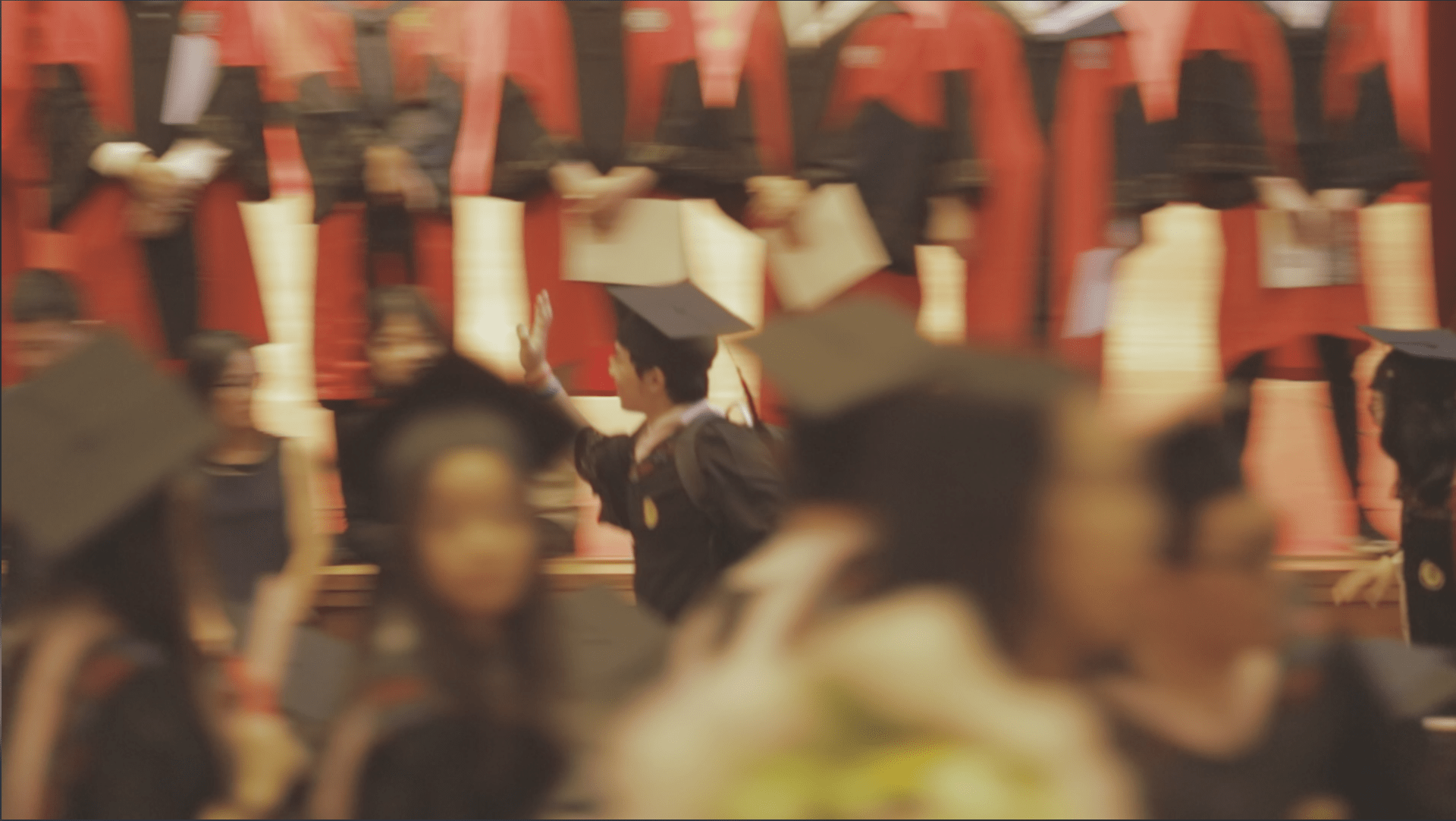Director │HONG Jia-bao
Producer │LIU liu
Aishan is blind and lives in a massage shop in Beijing. She was ignored by her family for her disability and a nuisance to her colleagues for her frankness and quick wit. She yearned to find someone who truly loved her. Yet after several years of struggling, even this dream seemed unattainable. Therefore she gave up and started living for the day.
In the years I’ve known Aishan, too often I heard her complain about her life. I became, in her words, the only true friend she could talk to. I wanted her to try to change her life, but I discovered that there was no end to her abyssal problems. They crashed down as if from the sky, and she was destined to be trapped in them for her entire life.

Director │Jian FAN
Producer │Richard LIANG, S. Leo CHIANG
After the 2008 Sichuan earthquake razed a Chinese city to the ground, thousands of families lost their only child, and were permitted to try and have another, in an effort to fill the void created by this tragedy. Born to be Second follows two of these families. Mei and her husband Sheng had a biological son, Chuan, while their friends, Ying and her husband Ping, opted to adopt a daughter, Ran-Ran. Chuan, now 6, approaches the age of his late sister. He is starting to make sense of the unusual burdens his parents place on him, and of the wound that time has never healed. Ran-Ran, now 12, had always been told that Ying and Pin were her birth-parents. She can recall having lived somewhere else as a very young child, but she has chosen to accept her parents’ white lie. Soon, fragments of the truth will emerge and will be impossible for the family to confront together. Both families are arriving at critical junctures in their lives, challenging how they have been living for the past ten years.

Director │CHEN Yen-Hao
Producer │SHEN Tzu-Chi
Shu-Cheng KUO has just become the youngest village chief in Taiwan. As a 25-year-old fresh college graduate who identifies himself as a “rebellious leftist”, he is now in the front line of politics, facing mundane tasks, conservative system and the annoying elderly citizens––in his own words. He is constantly challenged by the residents. Conflicts can be caused by issues as trivial as free lanterns for Lantern Festival or as big as sidewalk renovation or the construction of Village Activity Center.
Is this young man really a good fit for a village chief? Does he see this position merely as a launchpad for his future political career or a possibility to break the pedantic political system? We might know the answer, but we can be sure that the four-year-long tenure is not going to be easy for KUO.

Director │ KANG Shi-wei
I am a middle class member of this country. From 2016, due to the government’s frequent promotion of internet finance and the promises they made, many Chinese citizens like me were induced by the advertisements for P2P online lending apps in many places to invest in P2P lending platforms, in, as the government put it, “the development of small and medium enterprises serving in China.” In the summer of 2018, Perhaps as a result of regulatory or integrity issues, the seemingly calm P2P industry saw a massive wave of company bankruptcies and shutdowns, commonly known as “ 暴雷 ” ( “bao lei, thunder strike.”) Millions of middle class people lost large sums of their savings. I was also one of its victims, losing over 200,000 US dollars. I wish, by producing this documentary, to restore the truth, and find a basic method to solve the online finance crisis in China.
Perhaps, I can get my money back.

Director │ HUANG Yin-yu
Producer │ So SUGAYA
HAYASHI Keiki, the second generation of Taiwanese immigrants, was born in Miyako Island, Okinawa. Although Professor HAYASHI succeeded in academic works, his identity made him isolated by colleagues with prejudiced belief. Such an anti-Chinese emotion was regarded to the unhumanity experiments by the pre-war Japanese-secret biological warfare Unit 731. More worse, some professors were the participants of experiments.
To leave the chaos behind, HAYASHI went to Dalian, China for several years. Yet, he was under attack on all sides when backing to Japan with extraordinary achievements. In 2001, an incident brought HAYASHI into a scandal and imprisonment. It then became the famous miscarriage of justice. The incident revealed the deep-rooted racial discrimination and Xenoglossophobia of Japanese society.

Director │JIN Hua-qing
Producer │WU En-xy, LI Xin-yi
Every winter, the nuns go through a100 days of meditation in a small wooden house on the mountain. It is still snowing heavily when they come out of the house, and no sign of spring.
Day by day, the youngest nuns labor away, carrying through work which would seem boring and neverending to ordinary people. These Tibetan girls are sent to the monastery by their families as a child, never to return to normal life and rarely goes home. The nuns kowtow in the mountains which is physically- exhausting, yet it is part of the lifelong meditation which eventually ends by death. The celestial burial is overtaken over by torrential rain, and the nuns’ crimson robes turn into gray butterflies in the flames. Most of them spend a lifetime in this monastery, and say goodbye to the world here. In the pith room, nuns and the Guru converse about life and death, where we came from and where we would go after.
This spring, many nuns were cast out of the monastery, as the land of bliss has at last fallen from atop. The nuns say goodbye to the Guru, who tells them nothing lasts forever: “Deep in our hearts, we must maintain compassion that cannot be conquered by others.”

Director │WU Yue
Producer │ Vincent DU
Thirty-year-old Sisi is a WBC Asia Title champion and the mother of a two-and-a-half-year-old boy. This year, 2019, will be her most challenging yet. Not only does she have the opportunity to fight in a potentially career-changing International Boxing Federation match, she is also resuming full-time care of her son, who has been living with his grandparents.
Sisi was born and raised in a conservative family who believe––as many do in China––that motherhood is a woman’s most important job. After her son was born, Sisi suffered severe postnatal depression. Boxing became her way out, a way to show the world she existed.
Sisi worked hard to get where she is. But how will she face these new challenges? How to maintain a gruelling training schedule and raise a young son? And what about having a second child?
Can Sisi win inside and outside of the ring?

Director │ DENG Wei
After MAO Se-zuo’s father got shot dead for selling drugs, her mother put her in the care of her uncle and went away to work. Her uncle had plenty of children, while also supporting the kids of relatives who were sent to jail for drug dealing. Tears and laughter filled the large poor family with more than a dozen children, as day by day the kids grew up as they await their parents’ return. When New Year came, the parents were all home as expected, except for MAO’s mother. It was rumored that she has been arrested for selling babies. MAO was certain this was all just hearsay and wished to ask her mother in person about the truth. After many twists and turns, she was ultimately not able to see her. Soon after, her cousin died of an accident. As life reared its ugly head time and again, would the child be left molded in her parent’s fashion, or could she retain her innocence and beauty, and break free from the cycle of fate?

Director │ ZHANG Yi-xing
Producer │LI Bo
It sounds impossible that people with hearing loss can sing. However, in Beijing Concert Hall, on August 4th, 2018, the impossible did become possible. “The Silence Choir”, consisting of 14 children with hearing loss, put on a special performance, all the audience members felt touched.
The story began five years ago, when artist LI Bo and musician ZHANG Yong wanted to record voice from people with hearing loss and use it in their works. The things that happened afterwards overturned their thoughts and changed their life. The songs from a voiceless world ask a question: what is the “correct” voice? Everybody is longing for real freedom and equality, but none of them has ever reflected what the standard of so-called “normality” should be. The controversy, media reports and applauses coming along, as well as issues such as children’s education, all followed.
This documentary tells a story about two groups of people who can’t have met before affect and remedies each other in the “impossible” world of music and art.

Director │ZHOU Hao
Producer │HE Shan
TONG, a psychotherapist, and YAO, a mime artist, both in their respective lives have encountered unexpected events. Notwithstanding the elapse of time, those events have been haunting as flashbacks every now and then. To live with the past, or even to reconcile––such has become one of the major issues they have to grapple with as they live on.
Desperately though, maybe ALL IN proves to be the only choice.
This film will thereby explore how people live together with their trauma and memory.

Director │LIU Chun-yu
Producer │REN Xiao-yu
The film crew selected two families for observational filming and has already tracked them for 8 years. In these 8 years, the long and winding journey of both families reflects the way the three systems of the Wa village "Wengding" in China (the headman, local community organization, and tourism systems) has changed in the course of time, and how their right to social organization has altered due to external intervention.
.png)
Director │YAN Da-zhong, LIU Zhuang
Producer │CHEN Yun-zhu
The Qinghai-Tibet Plateau, western China, is the birthplace of many great rivers. Its geographical isolation miraculously retains an untouched natural environment and an intimate way of living with nature.
26-year-old Palden and his wife lived a traditional nomadic life in the mountains of Sanjiangyuan (“the source of three rivers” in Chinese). They wouldn’t worry about what was happening in the other parts of the world, only whether wolves would attack their horses when the sun went down and how to get through the long, cold winters. However, rapid development and a degrading environment is changing this way of living that Tibetans have maintained over thousands of years.
When Palden left his homeland of Sanjiangyuan, the source of himself and many rivers, and drifted to bustling and complex towns and cities, how did he address modernization in the context of his own philosophy of life?

Director │HU Tianjingsha
Producer │XU Wei-chao
When HU Tianjingsha was seventeen years old, he was sent off to the United States to attend high school in Maine, under his parents’ expectations of getting into a prestigious university and “becoming someone”. Going by the name of Vinnie, his school arranged him to stay with a German-American family. His host, Kathleen, held native American rituals in the house, sang Tibetan-Buddhist songs in the car, tempting Vinnie to search for a spiritually-liberated future. One night, a piece of music popped up in Vinnie’s dream and, convinced that the melody was related to Tibet, going there became Vinnie’s ultimate mission in life.

Director │Zed WANG
Producer │Tami XU
In the 1990s, as the Taiwanese economy took off and its entertainment industry dominated the Chinese-speaking world, LU Wen-chung was the head of the art department in several record and film distribution companies successively. To fulfill his dream as an artist, he gave up his high-salary job and went to America to study animation.
Wen-chung graduated with top marks and chose to return to Taiwan to build his dream kingdom, securing loans to set up his own film studio. However, as his mother died in a car crash, his land expropriated time and again, his father committed suicide, along with his mismanagement and failure to raise funds, the bitter reality steadily chipped away at his dream castle, and his studio slowly turned into a dust-covered warehouse.
Ten years have passed, and the confident young man who chased his dreams still can’t produce his first feature film. Did the changing times and industry advancements make artistic creation a luxury? Or is this all some quixotic dream?

Director │YANG Bo
Producer │XU Xiao-fei
Born to a family of ordinary nomads in Ordos, Inner Mongolia, Agaar belongs to the post-90s generation who learned to speak fluent English on his own, and returns home after working for three years on a cruise ship. Some people around call him a braggadocio, some who consider him as a hero. Agaar takes pressure upon himself as he tries to prove that he can be a “modern nomad” in the times of the Internet.
The life of a nomad is very dynamic. On the grassland, man and animal, man and man are connected in a simple yet touching way. In his own way, Agaar linked the city vs. the grassland; convenience vs. obsolence; the post-Industrial era vs. the primeval way of life. He would video chat with his friend in Dallas while feeding the cow on his piece of grass. The two extreme cultures find peace and harmony on Agaar.
Like most 29-turning-30 post-adolescents, Agaar tackles with family and career issues, and his reality bites are easily foreseen. Can Agaar’s nonchalantness and pride tide him through difficult times?

Director │WU Hsin-yu
Producer │Jerome WANG
Have you ever noticed the extra actors in the scene? Acting is a very mysterious job.If you are new to this business, you’ll certainly encounter a lot of difficulties such as low pay, long working hours, and no guarantee of future employment. But there are always people who want to chase their dreams, trying everything they can to get into the acting business. This film profiles the extra actors of different genders and generations in Taiwan.
They may have different backgrounds and issues in life, but they all looking for a stage to act, to become a top star. But as the industrial change in show business, some of them choose to build up their career locally in Taiwan; others take their chances in the blooming show industry of China.
For these actors who are in the bottom of the pyramid, will they win the success they want one day?

Director │WU Xiao-wen
Producer │SONG Jie, Veron LIN
In the remote mountainsof Teng Chong, Yunnan Province, lived an old nun with two adopted girls. This unusual formation of a family brought earthly troubles to the supposedly-holistic Buddhist convent. Not only does the old nun handle the daily trifles in the convent, but the growing pains of the two girls as well. One day, Master discovers that the older girl, SHI Dingyi, has fallen in love, and conflict of all sorts erupt within the family: the birthrights of the two girls, Master’s woes and distress from far and near, their similar ghosts of the past and increasing clearer future. Conflict reaches a point where Master has no choice but to send SHI Dingyi away, bringing only a short-lived peace to the convent, as SHI Yuanming begins to show the signs of teenage rebellion.

Director │ZHANG Lin
Producer │SU Guo-xiang
From age 15 to 22, ZHOU Zi-qi graduated from the top high school in Beijing and entered China’s top university. It was, however, a fall from grace for him, as he was unable even to maintain his mental well being. He was torn between his teachers’ hopes for him to become an academic elite, and his parents’ insistence on stability and making money. After graduation, ZHOU received a letter of admission from the University of Chicago in the United States. Could he recover his inner world and attain both his ideals in a new foreign environment?

Director │LI Wei
Producer │Edmond YANG, QIU Yang
Dazhang had been in bed for three years, his wife had abandoned the family. The family depended on two old men, three young children who did not understand why their father was ill and still grew up playfully.
Pneumoconiosis has torn the family apart, leaving it long- suffering and under the shadow of death. The unspeakable kinship of the Chinese community turns into scolding, complaining and accompanying in daily life.
In the children’s eyes, their father has long been moaning and scolding in the bed. Their father did not have a chance to express his love and tell his own children about the future before his death.

Director │Tim COLE
Producer │BaoBao CHEN
Small Island Big Song is a collaborative audio-visual-live project uniting indigenous musicians across the Pacific & Indian Oceans through song in the face of climate change and cultural loss. Spanning from Taiwan to Aotearoa/New Zealand, from Madagascar to Rapa Nui/Easter Island.
After 2 years of touring the world and releasing the award-winning album, Small Island Big Song is bringing the story back home.
As for the first peoples of the Oceans, before the written word, songs held the power, passing on the cultural knowledge, like how to live on an island with limited resources. And the fact is, we are losing these songs, when we need them the most.

Get daily insight and update containing tips, skills for your creativity
Zero Spam. You Can Unsubscribe Anytime
